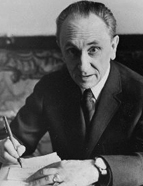

Historian, writer, politician, journalist and lecturer with a strong lifelong connection to the monarchist and traditionalist field and to the Estado Novo, João Francisco de Barbosa Azevedo de Sande Aires de Campos, 2 nd Viscount and 3 rd Count of Ameal , was born in Coimbra in February 1902. The same city his parents were from: João de Sande Magalhães Mexia Ayres de Campos, 2 nd Count of Ameal – a career diplomat who had been stationed in the Netherlands and a politician with links first to the Partido Regenerador [Regenerative Party] and then to the Dissidência Progressista [Progressive Dissent]– and Maria Benedita Falcão Barbosa de Azevedo e Bourbon. From an early age, he lived in Lisbon, where his father was part of Hintze Ribeiro ’ s 1903 government as S ecretary to the Minister for Foreign Affairs, Venceslau Lima – and from where, in 1908, following his participation in the ‘Intentona do Elevador da Biblioteca’ [Library Lift Attempt] (an abortive attempt at a revolutionary coup to overthrow João Franco), he was forced to leave for exile in Galicia.
In keeping with family tradition, he graduated in Law from the University of Lisbon in 1921. It was during his academic years that João Ameal (the family ’ s noble title, which he adopted as his surname) came into contact with Integralismo Lusitano (IL) [Lusitanian Integralism] , which was essential from the point of view of shaping his political – and also historiographical – ideals, but with which he maintained a polarised relationship: in 1923, he left the movement and founded the Acção Realista Portuguesa [Portuguese Royalist Action] with Alfredo Pimenta, taking over the running of its journal, Ação Realista [Royalist Action] . However, he maintained his connection to António Sardinha, whose thinking would continue to influence him throughout his life, and to whom he wrote in 1924, greeting him as ‘my illustrious Comrade, Master and the most prolific Animator of our Crusade’ (Letter dated 26-10-1924, A. Sardinha ’ s estate, UCP Library). He returned to IL after the latter ’ s death at the end of the 1920s, collaborating in the magazine Integralismo Lusitano – Estudos Portugueses [Lusitanian Integralism- Portuguese Studies] for two years (between 1931 and 1933) and then accompanying Francisco Rolão Preto in the National-Syndicalist experiment. His time there was also brief, as he joined Manuel Múrias in the dissent that led to the creation of Acção Escolar Vanguarda [Vanguard School Action] . He became one of the new regime ’ s main ideologists: he was the author, for example, of the 1934 poster Decálogo do Estado Novo [Decalogue of the New State] and, that same year, he was appointed by António Ferro to the Portuguese section of the short-lived Committees for Action at the University of Rome. In the following years, he was also deputy S ecretary- G eneral of the Liga de Acção Universal Corporativa [Corporate Universal Action League] (1935), member of the National Assembly (1942-1953) and attorney to the Câmara Corporativa [Corporate Chamber] (1957-1961).
This work is financed by national funds through FCT - Foundation for Science and Technology, I.P, in the scope of the projects UIDB/04311/2020 and UIDP/04311/2020.
